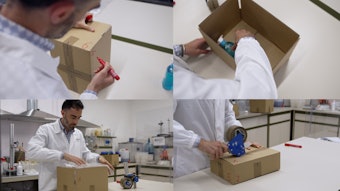
In a push towards sustainable innovation, Epax is investing $10 million in a significant upgrade to its main production facility, targeting the development of next-generation marine oil products. Spearheaded by a groundbreaking synthesis plant, this investment puts Epax on track for new patented products and strengthens its commitment to sustainability.
This significant investment in the Aalesund, Norway facility will see the construction of a new synthesis plant. Leveraging Epax's unique fractionation technology, designed to modify fish oil and extract different fatty acids, the plant will lead the production of bespoke nutrition, cosmetic and personal care products.
Construction of the new plant is underway and is expected to be operational by early 2026.
This innovative technology, developed by Epax's R&D team, has been successfully piloted and tested. With this implementation, Epax fortifies its position as a leader in the omega-3 landscape and paves the way to develop new patented products rich in omega-9 and omega-11. These long-chain monounsaturated fatty acids (LC-MUFAs) have unique potential in nutraceutical applications targeting skin and metabolic health, and in beauty and personal care products.
The new plant, powered by resources from the North Atlantic pelagic fish species, speaks volumes of Epax's commitment to local resource utilization and sustainability. It is expected to process 5,000 tonnes of crude oil annually, underpinning Epax's sustainability strategy, per the company.
The investment also funds the expansion of Epax's tank farm for crude fish oil storage, fortifying Epax’s ability to optimally use the various fractions of the oil for human nutrition products, aligning with the company’s key ESG goals.
CEO of Epax, Bjørn Refsum, commented, "This investment demonstrates our devotion to harnessing the full potential of marine lipids. We're proud of our unique technology that enables the development of exciting new products for human health. We remain committed to growth, innovation, circularity, and environmental stewardship."









